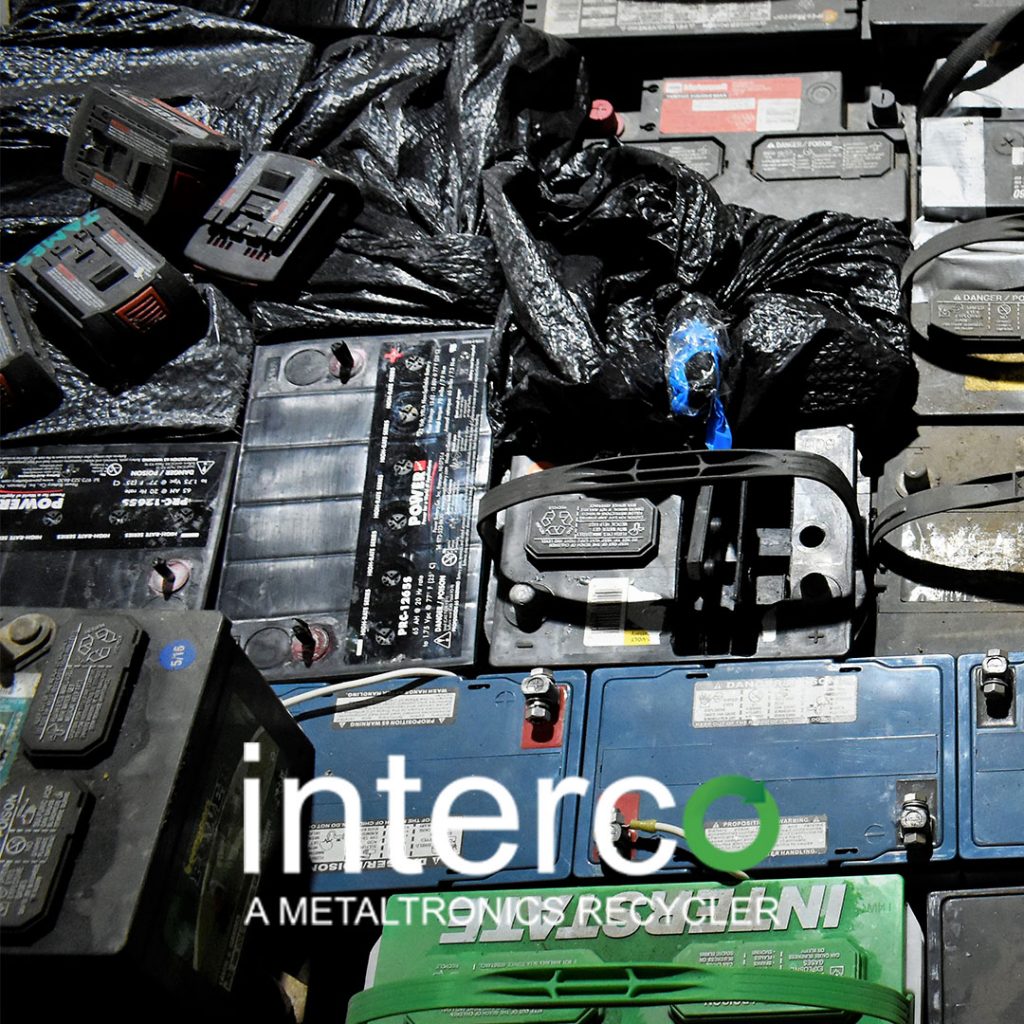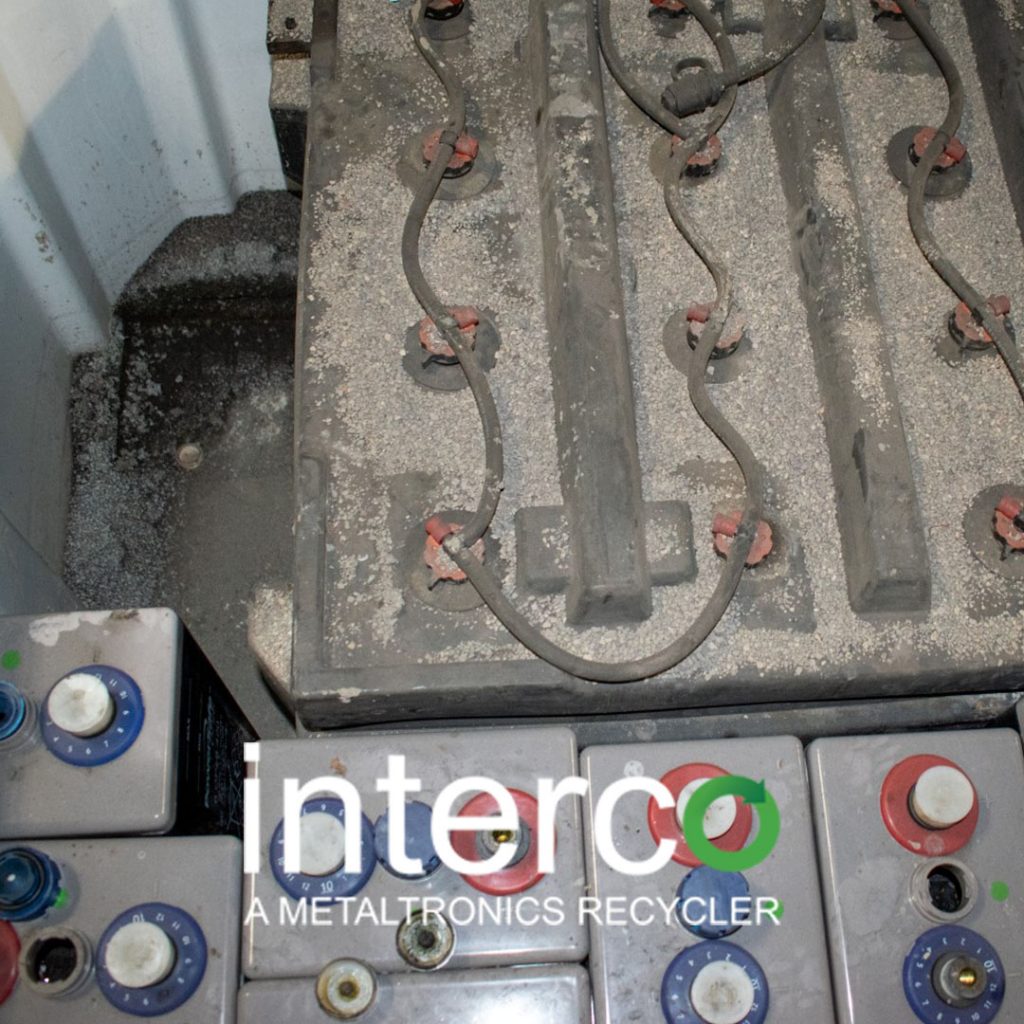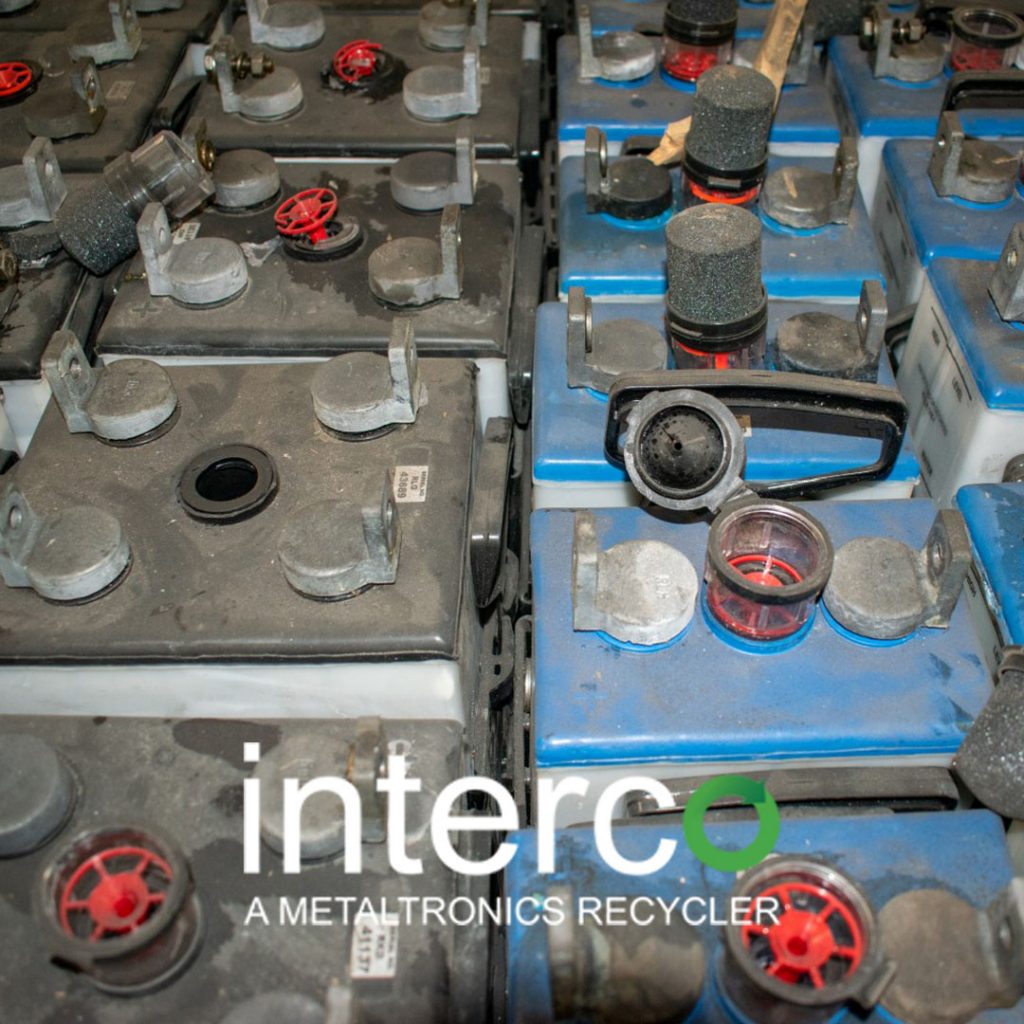Here is How and Where to Recycle Lead-Acid Batteries

Here is How and Where to Recycle Lead-Acid Batteries
Many battery users are unaware of the proper ways to dispose of a battery – especially a lead-acid battery. There a few ways to dispose of the material including when to recycle lead-acid batteries. So, when considering disposal methods, it is important first to know what kind of battery your company is trying to trash.
Car batteries, and any other type of large lead-acid battery, cannot go in household trash or recycling. Additionally, lead-acid batteries are banned from landfills and incinerators in every state because of their toxicity levels.
Given the high acid content, it is highly advisable not to try recycling lead-acid batteries by yourself. In fact, Interco buys lead-acid batteries for recycling purposes.
According to the U.S. Environmental Protection Agency, specialized lead-acid battery recyclers crush old batteries into nickel-sized pieces and separate the different components.
The plastic in lead-acid batteries is mostly polypropylene, which has a high heat tolerance. It can be recycled. Furthermore, the lead in the batteries is sold to companies that make new batteries. In fact, the EPA estimates that up to 80% of the plastic and lead in any new battery you purchase is recycled.

Here’s How to Recycle Lead-Acid Batteries
There are two types of lead-acid batteries: starting batteries and deep-cycle batteries. A starting battery quickly delivers a large burst of power to help an engine start. A deep-cycle battery delivers a continuous low level of power to help an engine keep operating.
Eventually, these batteries reach end-of-life status or become obsolete. About their name, lead-acid batteries contain large quantities of lead and sulfuric acid, therefore requiring a safe disposal method.
The process of recycling used lead-acid auto batteries should be done carefully and with all consciousness, preferably in a controlled environment far from residential areas. Here’s how to recycle lead-acid batteries
- First, recycling companies collect expired or used lead-acid auto batteries for battery depositories.
- The recycling company then neutralizes the acids. They introduce a base that subdues the corrosive properties (toxicity) of the acid so it can be safely disposed of.
- A hammer mill shatters the battery or breaks it apart. The process is referred to as hammering.
- Then, place broken pieces in a vat, so that the lead plates and heavy materials sink to the bottom while the plastic floats.
- They transport the polypropylene plastics into a plastic recycler to melt and refine them.
- Then, the process goes to clean the lead plates and heat them in furnaces, so they melt. After this, cast the molten lead into an ingot mold. After a few moments, the impurities float to the top of the cast, and they scrape them away.
- Finally, they re-melt the pure ingot casts and use them in new batteries.

Here’s Where to Recycle Lead-Acid Batteries
Recycling used lead-acid batteries is significant because of the nature of their composition and use. Manufacturers and consumers alike use lead-acid batteries as backup power supplies or to power things like the following:
- Automobiles
- Electric scooters
- Electric wheelchairs
Interco recycles lead-acid batteries primarily for their lead content.
Battery manufacturers produce several types of batteries in use today. Different recycling processes are available for each to recover and recycle the materials. Depending on the content – whether it’s metallic, plastic, or chemical – recycling at different stages of the production cycle often determines whether recycling is feasible or not.
Also, Interco begins the recycling process by working with machines that shred the whole batteries and sort the plastic and lead. Then they separate and clean the different materials while and drain and neutralize the acid. The process reintroduces the lead as an industrial material for commercial production.
One of the first R2v3 certified recyclers’ in the world, Interco recycles nonferrous industrial metals and specializes in difficult to process alloys, lithium-ion batteries, metallic powders, and solar panels.
Choose Interco to Recycle Lead-Acid Batteries
Overall, recycling lead-acid batteries are vital. Furthermore, it enables recyclers to recover valuable metals and reduces the harmful effects on the environment that improper disposal causes. Additionally, the team at Interco accepts, processes, trades, and recycles an array of nonferrous metals. Interco recycles batteries of all shapes, sizes, and chemistry. The team at Interco continues to lead the way in terms of innovative industrial recycling solutions. Finally, to learn more about how to recycle lead-acid batteries, click here.